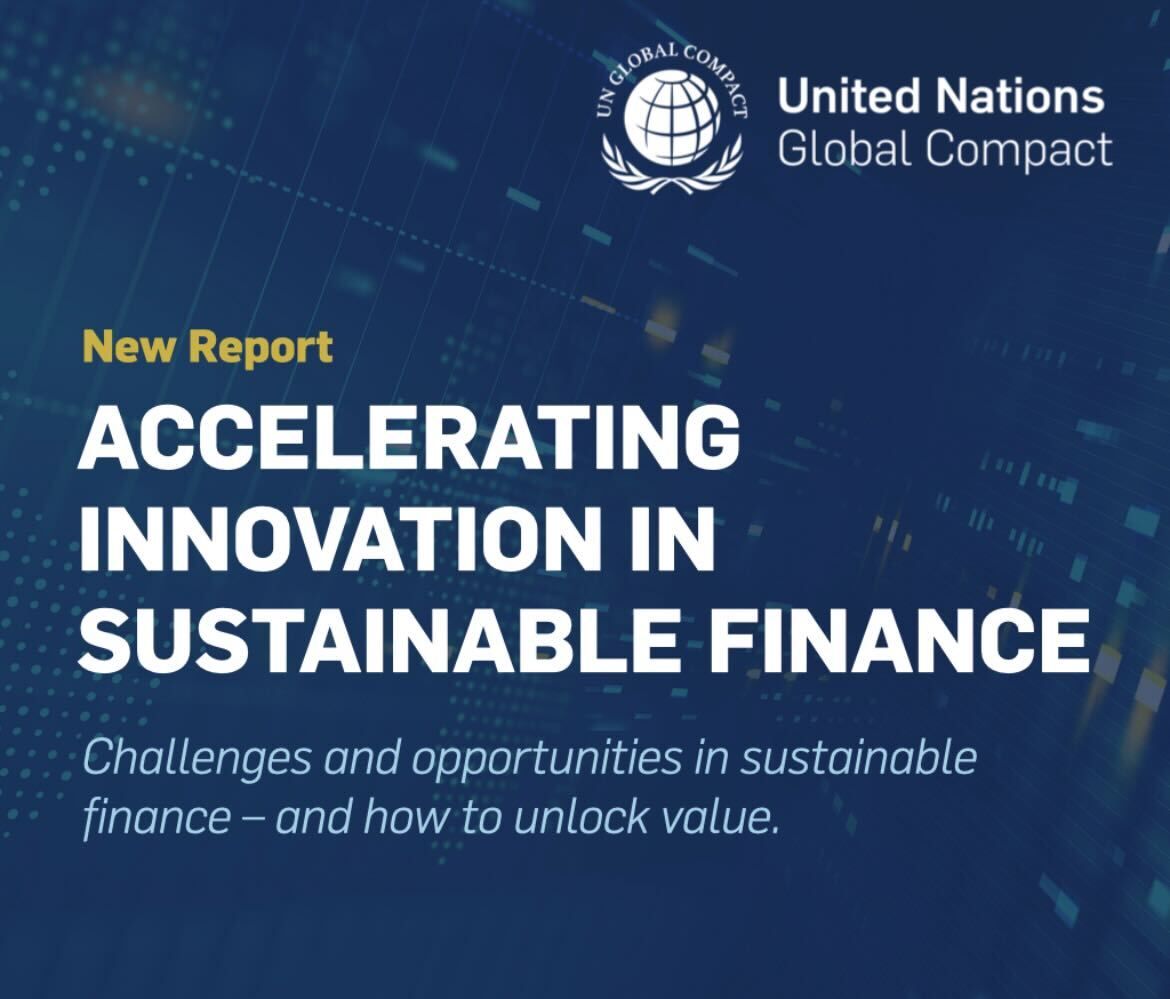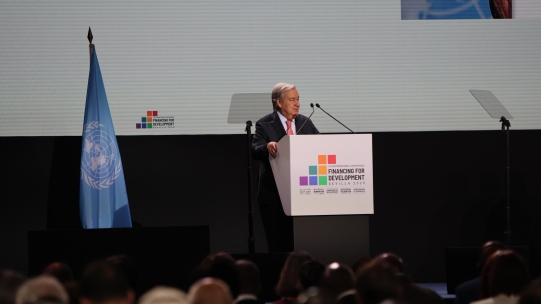Financing a Sustainable Future: How the Private Sector Can Lead at COP29
Read more

At COP29, the private sector has a pivotal opportunity to lead the charge in financing and driving sustainable climate solutions on a global scale.
As COP29 approaches in Baku, Azerbaijan, the urgency of climate action and sustainable development is more pressing than ever. Global leaders face the challenge of ensuring the world transitions toward a low-carbon, climate-resilient economy while addressing the socio-economic inequalities that climate change exacerbates.
Governments alone cannot meet the vast financial needs of this transition. The private sector—through businesses, investors and financial institutions—holds the key to unlocking the capital required to finance a sustainable future. At COP29, the private sector has an unprecedented opportunity to lead by driving investment in sustainable finance, fostering innovation and advancing climate solutions on a global scale.

The Critical Role of the Private Sector
As outlined in the UN Global Compact report Accelerating Innovation in Sustainable Finance, the private sector’s ability to mobilize financial resources and drive innovation is indispensable in the fight against climate change. Companies and institutional investors worldwide are increasingly prioritizing sustainability within their corporate strategies.
As a result, the global market for sustainable finance is expanding rapidly, with projections suggesting it could reach $40 trillion by 2030. Green bonds, sustainability-linked loans, and other financial instruments are already channeling billions of dollars into projects that support clean energy, climate resilience, and social equity.
Yet, the challenge remains immense. Climate pledges must now be translated into concrete, scalable solutions.
COP29 presents a moment for companies to back up their commitments to net-zero emissions and sustainability with meaningful investments in climate solutions. The private sector’s financial power and capacity for innovation position it uniquely to help achieve the targets set by the Paris Agreement and the Sustainable Development Goals (SDGs). This is not only a moral imperative but also a clear business case: sustainable investments are increasingly recognized as both profitable and necessary for long-term economic resilience.
UN Global Compact: Mobilizing the Private Sector for Climate Action
The UN Global Compact, the world’s largest corporate sustainability initiative, has been instrumental in mobilizing private sector action on climate and sustainability. With over 20,000 companies committed to its Ten Principles, the UN Global Compact has built a framework that enables businesses to align their strategies with global priorities, including human rights, environmental protection, and anti-corruption. This alignment ensures that corporate actions contribute to broader global goals, such as the SDGs and the Paris Agreement.
One of the flagship initiatives driving this alignment is the CFO Coalition for the SDGs. This coalition brings together Chief Financial Officers (CFOs) from leading global companies to embed sustainability into corporate financial strategies. By integrating the SDGs into financial decision-making, these CFOs are helping to unlock capital for sustainable investments, ensuring that business decisions generate both financial returns and positive environmental and social impacts.

Scaling Up Sustainable Finance at COP29
One of the critical priorities at COP29 will be accelerating the scale of sustainable finance to meet the growing demand for climate solutions. Emerging markets, which are the most vulnerable to the impacts of climate change, often struggle to attract the private investment needed for climate adaptation and mitigation projects due to perceived financial risks.
Blended finance—a model that combines public and private capital to reduce investment risks—has emerged as a key tool to address this challenge. By sharing the risk, public funds can unlock private capital for projects that would otherwise be deemed too risky for commercial investors – such finance can drive more capital into the regions and sectors that are crucial to the global green transition.
Another important area for discussion will be sustainability-linked financial products, such as green bonds and sustainability-linked loans. These instruments are designed to link financial performance to environmental and social outcomes, incentivizing companies to meet ambitious sustainability targets. The more businesses adopt these tools, the greater the positive impact on global climate resilience and sustainable development.
Public-Private Partnerships: A Pathway to Success
While the private sector’s financial resources and innovation are crucial, public-private partnerships (PPPs) are essential for creating the conditions necessary for large-scale sustainable investment. Governments and international organizations play a critical role in providing the regulatory frameworks, policy clarity, and financial incentives that can unlock private sector investment in long-term sustainability projects.
At COP29, public-private collaboration will be a key focus, especially in financing large-scale infrastructure projects that address climate adaptation and resilience. For example, renewable energy initiatives and resilient infrastructure development in regions like Africa have only been initiated because of successful public-private partnerships. These partnerships pool resources, expertise, and innovation, enabling large-scale projects that not only combat climate change but also drive sustainable development.
The Future of Sustainable Finance
By providing the frameworks and partnerships that align corporate investments with the SDGs, the UN Global Compact can guide businesses toward sustainable finance efforts are impactful, measurable, and scalable. The success of COP29 will depend on the ability of the private sector to turn its financial power into tangible actions that benefit both people and the planet. This is a pivotal moment for businesses to take center stage in the global climate agenda, and by committing to long-term investments, they can play a transformative role in shaping a sustainable, equitable future for all.


